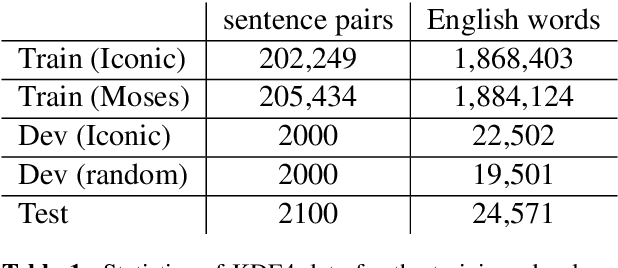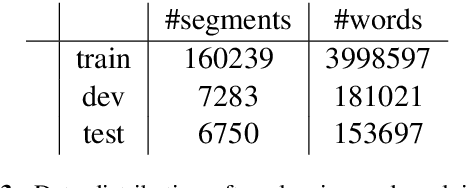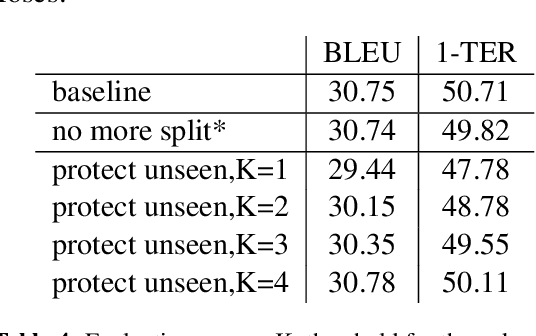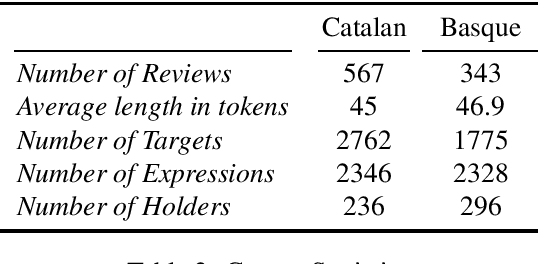Patrik Lambert
Improving Robustness in Real-World Neural Machine Translation Engines
Jul 02, 2019



Abstract:As a commercial provider of machine translation, we are constantly training engines for a variety of uses, languages, and content types. In each case, there can be many variables, such as the amount of training data available, and the quality requirements of the end user. These variables can have an impact on the robustness of Neural MT engines. On the whole, Neural MT cures many ills of other MT paradigms, but at the same time, it has introduced a new set of challenges to address. In this paper, we describe some of the specific issues with practical NMT and the approaches we take to improve model robustness in real-world scenarios.
MultiBooked: A Corpus of Basque and Catalan Hotel Reviews Annotated for Aspect-level Sentiment Classification
Mar 22, 2018



Abstract:While sentiment analysis has become an established field in the NLP community, research into languages other than English has been hindered by the lack of resources. Although much research in multi-lingual and cross-lingual sentiment analysis has focused on unsupervised or semi-supervised approaches, these still require a large number of resources and do not reach the performance of supervised approaches. With this in mind, we introduce two datasets for supervised aspect-level sentiment analysis in Basque and Catalan, both of which are under-resourced languages. We provide high-quality annotations and benchmarks with the hope that they will be useful to the growing community of researchers working on these languages.
 Add to Chrome
Add to Chrome Add to Firefox
Add to Firefox Add to Edge
Add to Edge